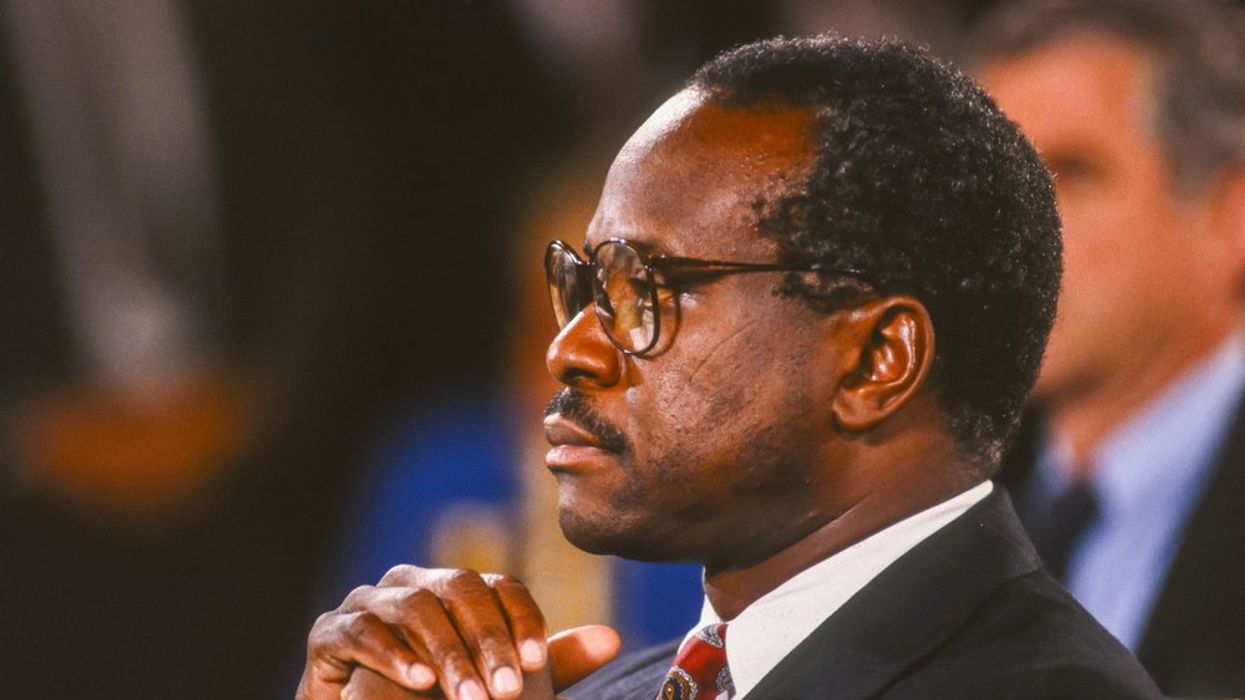The Clarence Thomas 'cover-up' could lead to his downfall: watchdog

Image via Rob Crandall/Shutterstock
Clarence Thomas is telling on himself
April 23, 2023 | 04:15PM ETBank
According to the executive director of Citizens for Responsibility and Ethics, Supreme Court Justice Clarence Thomas' avalanche of ethical problems may not bring him down, but the ensuing cover-up could.
The longtime conservative justice who has been on the court since 1991 is currently facing massive scrutiny over having his lifestyle supplemented with "gifts" and trips paid for by a conservative billionaire, as well as real estate transactions and payments that are raising eyebrows.
Starting with ProPublica's report on the relationship the conservative justice and his wife Ginni have with Texas billionaire Harlan Crow, calls have grown for a Senate investigation and for Supreme Court Chief Justice John Roberts to testify before Congress about what he plans to do about Thomas' ethical transgressions.
According to CREW's Noah Bookbinder, efforts by Thomas to explain away and "cover-up" his activities could end up being a bigger problem.
Writing for MSNBC, he suggested, "Thomas’ actions place him in potential legal jeopardy, and further undermine the Supreme Court’s legitimacy in the eyes of a public that has become increasingly skeptical of its ability to act as an apolitical arbiter of the law," before noting the former President Richard Nixon resigned when his Watergate cover-up caught up with him.
"That’s a lesson that the country learned from the Watergate scandal. The revelation that some Nixon campaign employees broke into the Democratic Party headquarters didn’t cause a generation of Americans to lose their faith in government," he wrote before adding, "Time and again the cover-up is what ultimately causes the downfall."
He continued, "This is poison for the Supreme Court. It is an institution built on a foundation of public trust: It does not have the power of the purse or the authority to enforce the laws that it interprets. Credibility is its currency. And that foundation of credibility is already eroding," and then added, "Thomas has an ethical duty, and he failed to live up to it. As a result, he has caused greater harm to himself, his legacy and the Supreme Court as an institution than disclosing his conduct would have done. And in doing so he learned the same lesson that many before him have been forced to learn: Honesty may be painful or uncomfortable, but the alternative is worse. And once again, our democracy may end up paying dearly for that lesson."
You can read more here.